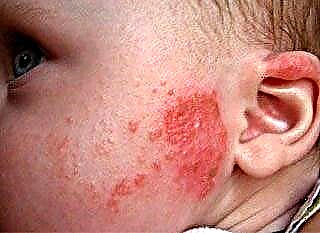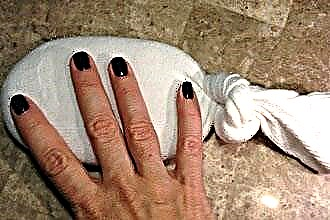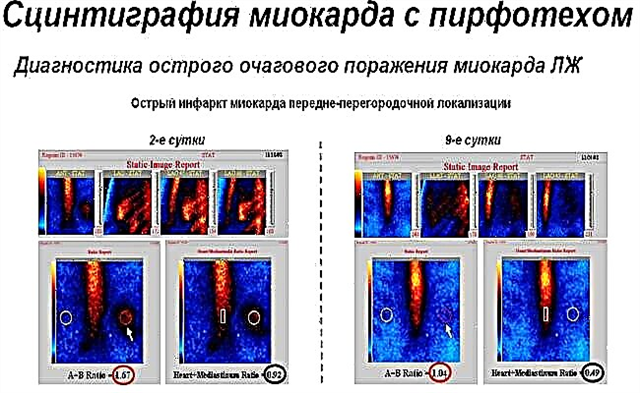 Inappropriate use of vasoconstrictor and hormonal drugs often causes adverse reactions in children who are on hepatitis B.
Inappropriate use of vasoconstrictor and hormonal drugs often causes adverse reactions in children who are on hepatitis B.
The selection of suitable medicines for a young mother should be dealt with by a specialist. Modern pharmaceuticals can offer more than 10 different drugs for intranasal administration, but only some of them are recommended for use during lactation. The article will look at the main types of rhinitis medications, as well as the safest nasal medications that can be used by a nursing mother.
General recommendations for the treatment of the common cold
A runny nose is not a separate disease, but a symptom that often indicates the development of a cold. To prevent complications, the treatment of a respiratory infection must be carried out in a comprehensive manner. Colds, flu and other viral diseases are provoked by rhinoviruses, picornaviruses, coronaviruses, etc. The pathogenic flora is most often localized in the nasopharynx, due to which the following symptoms appear in the abusive mother:
- profuse nasal discharge;
- fast fatiguability;
- headache;
- subfebrile fever;
- rawness in nasopharynx.
During lactation, doctors do not recommend the use of systemic drugs for the treatment of ARVI. The active components of drugs penetrate into milk, which is why the baby may experience side reactions - nausea, vomiting, tachycardia, etc. To speed up the healing process and reduce the severity of rhinorrhea (severe runny nose), it is recommended:
- Observe bed rest. During an exacerbation of ARVI, the body needs strength to fight the infection. To alleviate the course of the disease, it is recommended to stay in bed for 2-3 days;
- Drink warm drinks. The liquid helps to cleanse the body of toxic substances that are produced by viruses. Their removal allows you to reduce the severity of symptoms of intoxication and rhinitis;
- Ventilate the room. Regular ventilation of the room and humidification of the air helps to dilute the nasal secretions. This prevents its accumulation in the nasal cavity and paranasal sinuses, thereby reducing the likelihood of bacterial infection and, as a consequence, the development of sinusitis.
It is impossible to stop breastfeeding with viral rhinitis, as this will only increase the likelihood of developing the disease in a child.
Many mothers are sure that breastfeeding with a cold is harmful. In fact, during the development of infection in the female body, antibodies and immunoglobulins are produced, which are present in large quantities in milk. Weaning the baby from the breast, you automatically reduce his immunity. That is why doctors do not recommend stopping hepatitis B during an exacerbation of respiratory diseases.
Features of the use of nasal agents
The female body is able to cope with colds without the use of pharmaceutical preparations. But when breastfeeding, the immune defense weakens, since vitamins and protein components are required for the synthesis of milk. Depletion of nutrient reserves inevitably leads to the development of hypovitaminosis, which reduces the body's resistance to infections.
SARS in nursing mothers is often complicated by bacterial inflammation of the nasal cavity and, as a result, sinusitis. Therefore, with a cold, you need to use antiviral and immunostimulating nasal drops. The former destroy virions and prevent their reproduction in the respiratory organs, while the latter stimulate the production of immunoglobulins and strengthen the immune defense.
Treatment of colds during lactation is based on the use of symptomatic medications. With their help, it is possible to eliminate swelling in the nasopharynx, abundant nasal discharge, itching and burning in the respiratory tract. As practice shows, a healthy child and a mother's runny nose with HB are quite compatible things. At the first manifestations of the disease, antiviral drugs should be used, as well as nasal drops or aerosols.
List of approved drugs
What nasal drops can be used while breastfeeding a baby? The first six months of a child's life is one of the most dangerous periods for the use of pharmacy products by a nursing mother. Systemic drugs are absorbed into the bloodstream and pass into breast milk, therefore, they can have a negative effect on the child's body. It is for this reason that topical drugs are usually used to treat ARVI, the components of which are practically not absorbed into the systemic circulation.
Medicines based on sea water
 Saline preparations are the safest nasal drops when breastfeeding. They have anti-inflammatory, wound healing, antiseptic and decongestant effects. The nasal products include sea water purified from impurities, which contains useful trace elements and minerals. They can be used to treat rhinitis of almost any origin. Some of the best seawater-based drops include:
Saline preparations are the safest nasal drops when breastfeeding. They have anti-inflammatory, wound healing, antiseptic and decongestant effects. The nasal products include sea water purified from impurities, which contains useful trace elements and minerals. They can be used to treat rhinitis of almost any origin. Some of the best seawater-based drops include:
- "Physiomer hypertensive";
- Dolphin;
- Morenazal;
- "No-Salt";
- "Aqualor".
Moisturizing drops from the common cold reduce vascular permeability in the mucous membranes and increase local immunity, which prevents recurrence of inflammation in the nasopharynx.
Saline medications are among the safest nasal medications. They can be used without limitation for the treatment and prevention of allergic and infectious rhinitis.
Vasoconstrictor drugs (adrenomimetics)
To eliminate the common cold during breastfeeding, adrenergic agonists are often used, i.e. vasoconstrictor drops. They quickly relieve puffiness, normalize airway patency and make breathing easier. However, doctors warn that nasal drugs of this group can have a systemic effect on the body of the mother and child. This results in abnormal heart rhythms, dizziness and nausea.
To prevent adverse reactions, it is recommended to use medications that contain small amounts of adrenaline receptor stimulants. Some of the safest medications for nursing mothers include:
- Indanazolin;
- Rinorus;
- Otrivin;
- Rinonorm;
- "Nazol Baby".
Important! During lactation, vasoconstrictor drugs can be used no more than 3 times a day.
It is important to remember that adrenergic agonists can be addictive. Therefore, nursing mothers can use them for no more than 3-5 days in a row. Irrational use of drugs is fraught with degenerative changes in the nasal mucosa and the development of medication rhinitis.
Antiallergic drugs
Antihistamine nasal drops relieve symptoms of hay fever (allergic rhinoconjunctivitis) and runny nose of an infectious origin. They prevent the release of inflammatory mediators from mast cells, which cause obstruction (obstruction) of the airways in the nasopharynx. When feeding an infant, it is recommended to drip the following drugs:
- Antazolin-Naphazoline;
- Nazaval;
- Rinotek;
- Sanorin-Anallergin.
"Nazaval" refers to the number of barrier drugs that form a film on the surface of the mucous membrane, impermeable to allergens. These drops can be used to prevent allergic rhinitis during flowering of wind-pollinated trees and plants.
Homeopathic remedies
The homeopathic drops do not contain synthetic substances, so they practically have no contraindications. Nasal products contain herbal ingredients that accelerate the regression of inflammation in the nose and normalize cellular metabolism. Due to this, local immunity increases in the nasopharynx, which prevents the re-development of a respiratory infection in the respiratory organs.
 To cure viral rhinitis and prevent complications will help such means as:
To cure viral rhinitis and prevent complications will help such means as:
- Rinaldix;
- Delufen;
- Euphorbium Compositum;
- Larinol Edas-117;
- Edas-131.
Not all herbal drops are homeopathic remedies.
Homeopathic drops are rarely used as monopreparations in the treatment of ARVI. They combine well with all known types of drugs for intranasal use, therefore they are most often included in the scheme of complex treatment of colds.
Antibacterial and antiseptic agents
Bacterial rhinitis is a common complication of ARVI, which is observed with irrational treatment of a viral infection. The development of the disease is indicated by viscous yellow-green nasal discharge, swelling of the nasopharynx, fever, myalgia (muscle pain), etc. If the microbial flora in the nasal cavity is not destroyed in time, this can lead to sinusitis, sphenoiditis, purulent nasopharyngitis, etc.
Complicated forms of ENT diseases are treated with nasal drops with antibiotics and antiseptics. To eliminate the symptoms of bacterial rhinitis in nursing mothers, the following are used:
- Octenisept;
- "Bioparox";
- Miramistin;
- "Polydexa".
The minimum duration of treatment for a bacterial infection in the nasopharynx is 7 days.
Premature refusal of drugs can lead to the development of resistance (resistance) of microorganisms to antibiotics. For this reason, with recurrences of bacterial inflammation, the doctor is forced to radically change the therapy regimen. Systemic antibiotics may be required to re-eradicate the infection, which often leads to the need to stop breastfeeding.
Runny nose prevention
A runny nose is always accompanied by inflammation of the nasopharynx and excess mucus production in the paranasal sinuses and nasal passages. A viscous secret is an ideal substrate for the development of microbes, which often provoke bacterial rhinitis, sinusitis, frontal sinusitis, etc. To prevent the occurrence of diseases, it is advisable to prevent the occurrence of a cold.
Recommendations for preventing rhinitis in nursing mothers:
- avoid contact with irritating substances - household dust, down and animal hair;
- eat foods that contain many vitamins - carrots, apples, lean fish, garlic, broccoli, cereals and nuts;
- take immunostimulants and herbal adaptogens - Vitrum Prenatal, Pregnavit, Radiola extract and Razor extract;
- in the autumn-spring period, take vitamin and mineral complexes - "Complivit Mom", "Alphabet", "Elevit Pronatal".
The above tips will help strengthen the immune system and prevent the development of a cold. If the symptoms of the disease still appear, do not postpone the visit to the doctor.
Conclusion
When breastfeeding, the immune defense of the female body decreases. This is due to the production of milk, which "takes away" from the body almost all the necessary nutrients and vitamins. Hypovitaminosis is one of the triggers of infectious rhinitis in nursing mothers.
To eliminate rhinorrhea during breastfeeding, nasal drops are used. Unlike systemic agents, their active components are almost not absorbed into the systemic circulation and breast milk. Care should be taken in the choice of vasoconstrictor drugs, since an overdose has a systemic effect on the body. Subsequently, this can lead to the appearance of adverse reactions not only in the young mother, but also in the child.



